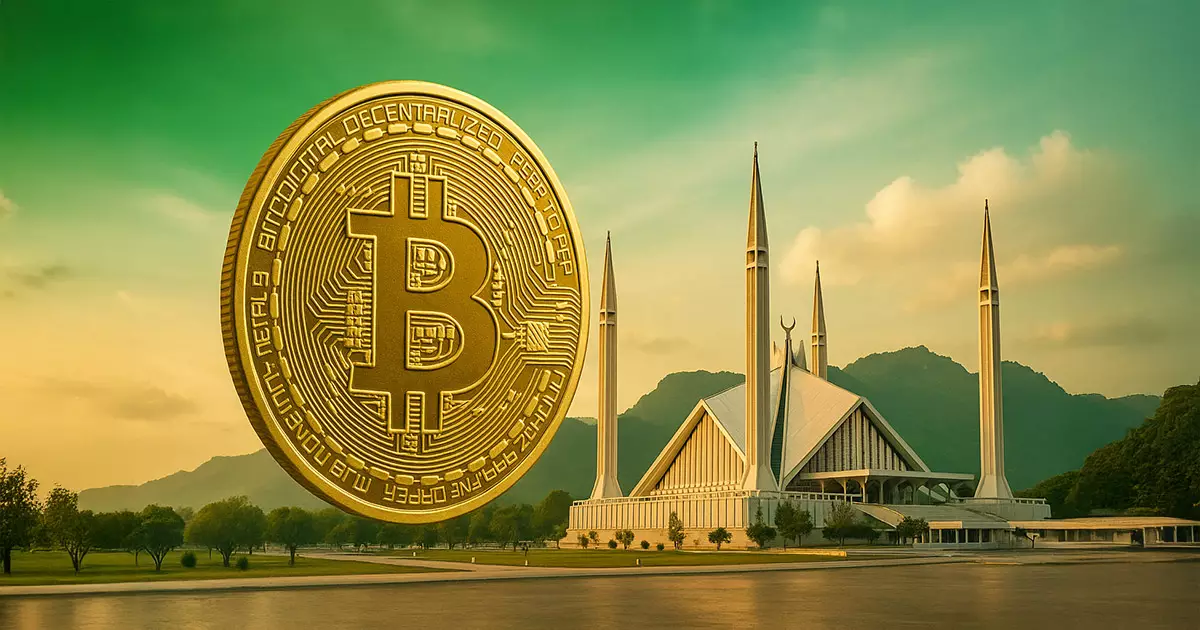Amidst relentless electricity shortages and severe fiscal strains, the International Monetary Fund (IMF) has put Pakistan in a precarious position. The country’s recent announcement to allocate 2,000 megawatts of power towards Bitcoin mining and artificial intelligence data centers has raised alarm bells among IMF officials, who require clarification on this initiative. How can a nation grappling with economic turmoil prioritize the energy needs of a speculative digital currency over its fundamental obligation to its people?
The IMF’s apparent insistence on transparency from Pakistan on power allocations signals a deeper conflict that exemplifies how contemporary policymaking has often sidestepped financial prudence in the digital era. While the prospect of entering the cryptocurrency domain could be seen as an audacious leap into innovation, it also raises significant questions about fiscal responsibility, especially when it threatens the stability of an energy-challenged state.
Financial Recklessness and a Path to Dependency
Pakistan’s decision to channel significant amounts of energy into Bitcoin mining reflects a broader trend of nations clinging to cryptocurrency as a lifeline amidst failing economies. The country has been steadily repurposing underutilized coal power plants for digital mining ventures, an initiative that might seem economically progressive on the surface but reeks of financial imprudence. The IMF, having previously warned against governmental investments in Bitcoin, has every reason to be skeptical, especially given that a $2.4 billion loan was just sanctioned, dependent upon stringent fiscal management.
The fear, as voiced by insiders in Pakistan’s finance ministry, is palpable. The heavy-handed scrutiny from the IMF means that achieving any semblance of fiscal balance is made even more complex by such initiatives. By foregoing immediate needs to chase speculative trends, Pakistan may unwittingly enrich a digital economy while further impoverishing its citizens. Short-term gains from Bitcoin might eclipse longer-term ramifications, making the nation susceptible to digital fluctuations and possible crises in energy procurement.
A Volatile Market’s Chaotic Embrace
The emerging regulatory framework surrounding digital currencies also invites skepticism. Pakistan’s establishment of bodies like the Pakistan Crypto Council (PCC) and the Pakistan Digital Assets Authority (PDAA) aims to assimilate cryptocurrencies into its financial system. However, the coherence of these initiatives raises significant doubts. The PCC appointed former Binance CEO Changpeng Zhao as a strategic advisor, but the credibility of such appointments remains questionable given the tumultuous reputation of the cryptocurrency sector.
The involvement of American figures like Donald Trump Jr. and the recent agreements surrounding World Liberty Financial further muddy the waters. Such entanglements not only challenge local sovereignty but could also impose external pressures that may sidestep Pakistan’s domestic needs. Emphasizing crypto adoption could consequently derail efforts aimed at solidifying the country’s financial autonomie, exacerbating existing economic challenges rather than alleviating them.
Searching for a Sustainable Path
Despite the energetic revival offered by the digital asset sector, the connection between cryptocurrency and grounded economic innovation remains tenuous. The undercurrent of enthusiasm for Bitcoin and its ilk cannot mask the reality of how these alternatives distract from critical, tangible economic improvements. Pakistan’s leadership must heavily weigh whether plunging into cryptocurrencies can genuinely serve as a panacea for the nation’s dire circumstances.
What is sorely needed is a recalibration of priorities. Economic policies must honor an equilibrium between innovation and the essential welfare of the populace, driven primarily by a renewed commitment to enhance electricity access for the ordinary Pakistani, not simply for the latest technological trends. As the IMF’s counsel urges a serious reevaluation of policy direction, it is incumbent upon Pakistan’s leadership to navigate the delicate balance of innovation and economic stability, ensuring that the nation does not become a cautionary tale in a world where digital currencies are often heralded as the future.
An Ethical Quagmire in Economic Strategy
The electrifying promises of the cryptocurrency sphere cast a long shadow over the essential needs of Pakistani society—exacerbated by policy decisions that hinge upon short-term gain. As rhetoric surrounding digital mining permeates Pakistani discourse, it must be met with rigorous scrutiny. The IMF is right to demand clarity, as Pakistan must confront the ethical quandary posed by prioritizing speculative investments over the steadfast needs of its citizens.


Leave a Reply